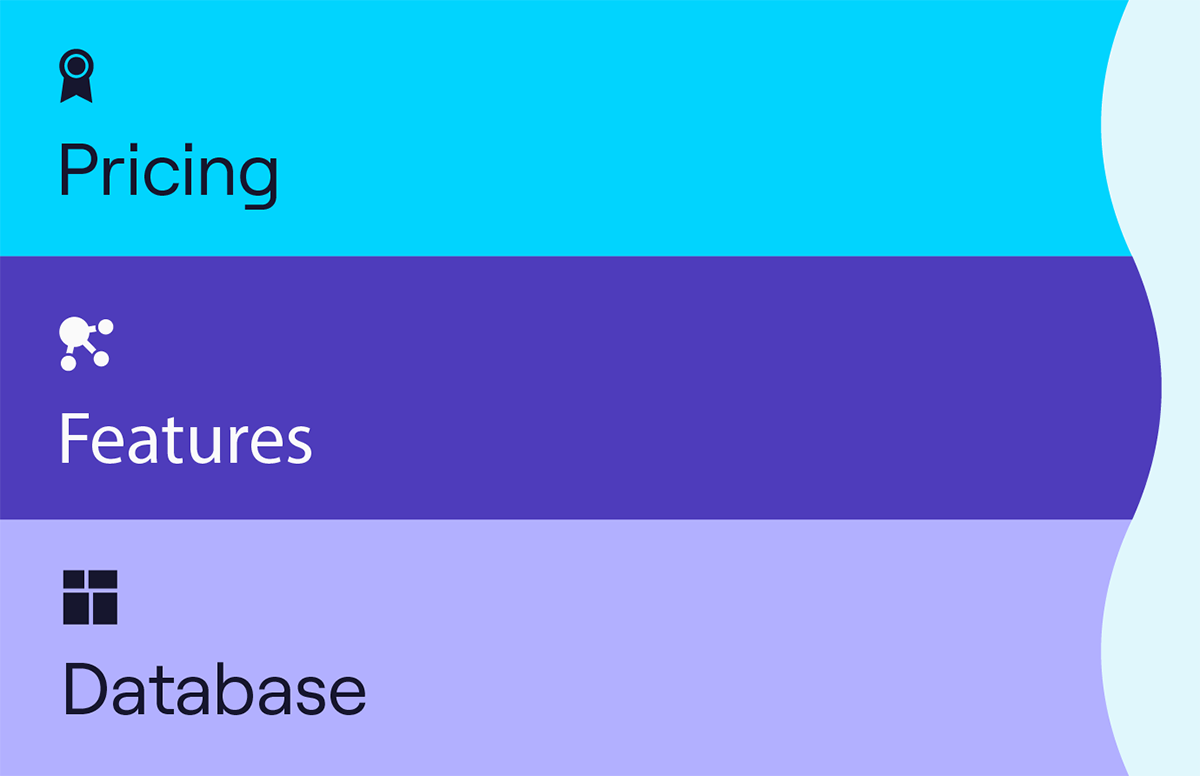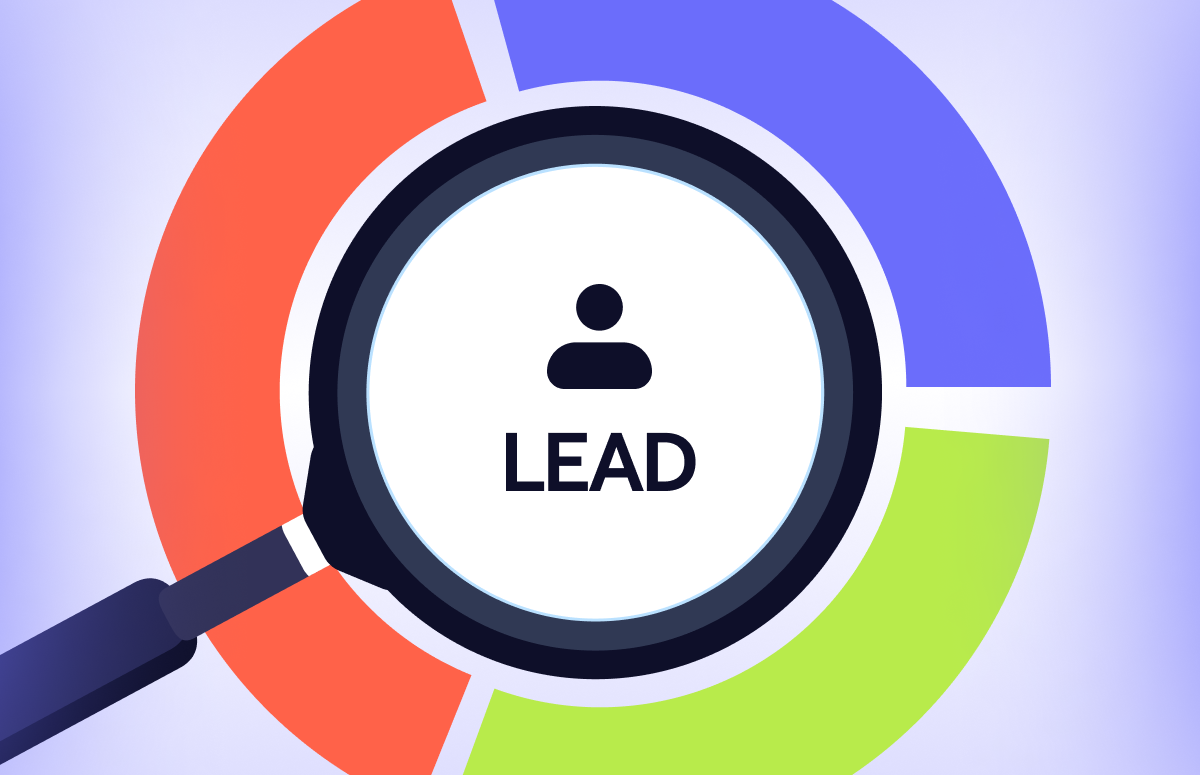Lusha vs ZoomInfo: Which B2B Data Platform Wins in 2026?
Choosing between Lusha vs ZoomInfo?
Both are reputable B2B contact and company data tools, but depending on your team size, sales model, and market focus, one may suit your business better.
Let’s break down how they compare on key features, pricing, and data coverage.
TL;DR
Choosing between Lusha and ZoomInfo depends on your scale, budget, data requirements, and the level of governance and infrastructure your revenue organisation requires.
-
ZoomInfo offers a powerful, enterprise-grade platform with deep data, advanced segmentation, and intent signals. Still, the extra costs add up, and many midsize businesses might struggle to see ROI.
-
Lusha is more affordable and easier to use, with a simple Chrome extension and fast access to contact data. However, its core prospecting capabilities are limited to the most expensive ‘Premium’ and ‘Scale’ packages.
-
Both rely on credits, which may limit data access and make forecasting costs more difficult as activity increases.
If you are prioritising compliant, mobile-first and internationally accurate B2B data - particularly for UK and European markets - the evaluation shifts.
Cognism is built as a European data foundation for revenue teams that require:
-
GDPR, CCPA and DNC compliance embedded at source, not layered on later
- Verified mobile numbers and decision-maker coverage across Europe and North America
- Unlimited data access without credit ceilings
- Direct integration into CRM systems, data warehouses and AI workflows
- Transparent commercial structures designed for predictability
Cognism enables revenue teams to reach the right decision-makers efficiently, with compliance built into every record.
Here’s a breakdown of how all three compare:
Book a demo to learn how Cognism can help you maintain data accuracy, minimise wasted efforts, and support revenue operations:
Book a Cognism data discovery call 👇
Feature comparison: ZoomInfo vs Lusha
ZoomInfo features:
ZoomInfo offers a suite of business tools to help teams prospect, find talent or increase ROI. These tools are called:
- SalesOS.
-
MarketingOS.
- TalentOS.
ZoomInfo features include:
- Copilot
- ZoomInfo Chrome Extension, engagement apps and integrations
- Display advertising, website chat, and form management.
- Company insights and buying intent signals.
- Sourcing intelligence with candidate alerts and company scoops.
But who is ZoomInfo best for?
Enterprise businesses with complex sales motions focused on the US market are best suited to ZoomInfo’s data.
The tool offers comprehensive insights, including intent, technographics, and integrated engagement workflows.
What are the pros of using the ZoomInfo app?
The ZoomInfo tool offers a large dataset, powerful filtering, and intent/forecasting tools.
What are the cons of using the ZoomInfo app?
ZoomInfo may be expensive for smaller teams. Due to its suite of business tools, it may be complex to navigate and have a steep learning curve.
Users have been concerned with unclear contract renewal terms, and reviewers mention that ZoomInfo’s data is stronger in the US.
Lusha features:
Lusha has several key features to help teams perform better throughout the sales process:
- Chrome Extension.
- Intent signals by Bombora.
- Email sequence automation.
- List management.
- CSV exports and integrations (dependent on the chosen package).
But who is Lusha best for?
Smaller teams and ICs who need fast email and phone contacts in the US benefit the most from using the Lusha database.
What are the pros of using the Lusha extension?
Lusha offers a simple UI and a free plan with add-on features, including email sequence automation.
What are the cons of using the Lusha extension?
Lusha uses a credit-based pricing model, with its core prospecting capabilities limited to the most expensive ‘Premium’ and ‘Scale’ packages.
If your priority is accurate, compliant, and signal-enriched European B2B data - delivered without credit constraints - the comparison shifts.
Cognism is built for that standard.

Head of Sales & Partnerships @UpCloud

Cognism is built for modern revenue organisations that require accurate, compliant European contact data from day one.
It provides a governed data foundation designed to support sustainable revenue growth without credit ceilings, additional compliance layers or inconsistent mobile coverage.
Cognism features include:
-
Web app intelligence layer that brings trusted European data and signals directly into seller workflows.
-
High-quality, continuously refreshed European contact and company data with strong coverage of director-level decision-makers.
-
Phone-validated mobile numbers designed to increase connect rates and reduce wasted activity.
-
Extensive European mobile coverage, including the UK and key EU markets.
-
Purpose-built European dataset, designed to support cross-border growth and regulatory alignment.
-
AI-powered search and account research tools, designed to surface relevant contacts and business context efficiently.
-
Unrestricted data views and exports (subject to fair usage), removing credit-based limitations.
-
Advanced contextual data and sales trigger alerts to support informed timing and outreach.
-
Browser extension compatible with LinkedIn, CRM systems and sales engagement platforms.
-
Native CRM and sales engagement integrations are included in every package, supporting clean data flows across your revenue infrastructure.
Whether you are expanding into the UK and Europe or strengthening coverage across existing markets, Cognism provides accurate, compliant decision-maker data designed to support sustainable revenue growth.
Request a demo to see how Cognism compares in practice
Pricing breakdown: Lusha vs ZoomInfo
Lusha pricing
Lusha pricing is based on credits per user. You get what you pay for: the features and number of records you can reveal and export depend on your subscription.
Packages for small businesses range from a free Starter plan with five credits per user a month to $29 and $51/mo per user with a limited number of credits.
You can cancel your plan anytime.
If you’re a 5+ team or an advanced user who needs integrations to CRM and SSO, you’ll need to opt in for the custom plan.
ZoomInfo pricing
ZoomInfo’s license pricing is more complex than Lusha’s and is only available after a consultation.
It offers packages for recruiters, sales and marketing, customised solutions with integrations, segmentation features, and different data points as add-ons.
Unlike Lusha, ZoomInfo doesn’t offer monthly plans.
Lusha is more affordable than ZoomInfo, and its pricing is revealed upfront for smaller users.
Both providers rely on credit-based models, which may limit data views and exports. This may lead to paying unexpected fees for extra data, and teams may worry about wasting credits.
If ZoomInfo’s platform is too expensive but Lusha’s doesn’t meet your needs for scaling or operating more efficiently, other products will get the job done at an attractive price point.
If you are evaluating platforms based on long-term value and cost predictability, Cognism operates a transparent commercial model without credit ceilings, view limits or unexpected overage fees.
Cognism offers two packages designed to support different levels of revenue complexity:
-
Grow: Essential European contact and company data for teams building pipeline.
-
Elevate: Combines Cognism’s verified data with advanced intelligence and actionable signals for more mature revenue operations.
Both packages include:
- Contact and company data, including phone-verified Diamond Data® records
- Target market analytics
- Native integrations with leading CRM and engagement platforms
- Clear pricing based on licences and selected add-ons
- Structured onboarding and training
- Exceptional customer support: fast answers via live chat (20-second average response time) from our highly-rated support team (99% satisfaction score).
Unlike ZoomInfo, access to European data does not require additional regional add-ons. Unlike Lusha, usage is not governed by credit consumption that can restrict activity as the quarter progresses.

Head of Marketing @Plandek

Whether you are building momentum in the UK or scaling revenue operations across Europe, Cognism provides predictable pricing and full access to the data layer required to support sustained growth.
Expanding into Europe? Sample Cognism’s data
Data quality: How do ZoomInfo and Lusha compare?
As a revenue leader, it is natural to compare the volume of email addresses and direct dials offered by ZoomInfo vs Lusha.
Database size appears straightforward - more records should mean more opportunity.
In practice, data quality determines outcomes.
High bounce rates, outdated contacts or incorrect numbers do more than waste activity. They distort pipeline forecasting, erode CRM integrity and introduce compliance risk.
When evaluating providers, the question is not simply how many records exist. It is how accurate, current and compliant those records are, particularly in regulated markets such as the UK and Europe.
This context is essential when comparing Lusha vs ZoomInfo.
With that in mind, here is how their databases compare:
- While both are extensive databases, ZoomInfo dominates with over 174 million email addresses and 94 million direct dials.
- At last count, Lusha was said to have more than 60 million email addresses and 50 million direct phone numbers.
In terms of overall volume, ZoomInfo’s database is larger than Lusha’s, with broader email and direct dial coverage.
Volume, however, does not automatically translate into accuracy.
Accurate, regularly refreshed contact and company data determine whether revenue teams reach the right decision-makers and maintain a clean, compliant CRM. This is where providers such as Lusha and ZoomInfo differentiate.
- Lusha data uses a proprietary algorithm to filter out unverified profiles, ensuring reliable contact details. It also enriches the profiles with firmographic data and basic data types.
- ZoomInfo data provides more comprehensive company information, as well as advanced data products and services. For example, it provides data enrichment features via a traditional API to support large-scale data needs, and re-enrichment Webhooks that update contact information in real time.
Despite their best efforts, no data provider is 100% correct in all areas. Data accuracy depends on several variables, such as industry or location.
ZoomInfo and Lusha check the accuracy of their B2B contact databases in different ways.
However, ZoomInfo’s advanced features may be overkill for smaller businesses looking to simply buy sales leads.
What if you could access high volumes of data without compromising on quality?
Database size alone does not guarantee accuracy. Cognism prioritises verified, decision-maker data through an exclusive mobile dataset of phone-verified numbers shown to deliver up to 3x higher connect rates.
Phone verification strengthens an already rigorous validation process, helping ensure contacts are active, correctly matched to their current roles and aligned to the right organisations.
If a record has not yet been phone-verified, verification can be requested, typically within 48 hours.
Every contact is screened against 15 Do Not Call lists - more than any other provider - supporting compliant outreach across the UK and European markets where regulatory standards are high, and enforcement varies by jurisdiction.
With Cognism, you get access to:
- Phone-verified mobile numbers, not just office lines
- Continuous enrichment to maintain CRM accuracy
- Intent signals powered by Bombora
- Strong coverage across the UK and European markets

Operations Manager @demandDrive
If Lusha’s coverage feels limited and ZoomInfo’s model feels overly complex, Cognism offers accurate, compliant European data designed to support sustainable revenue growth.
Lusha vs ZoomInfo: GDPR and CCPA compliance
ZoomInfo has a long history of ensuring compliance with CCPA and GDPR. Lusha is CCPA compliant and announced GDPR compliance in March 2023.
While Lusha is an official cleaner of the UK (TPS and CTPS) and the DNC, DNC list filtering is only available on Lusha’s highest package.
CCPA is a California-wide data privacy law regulating how businesses handle state residents’ personal information. GDPR was passed in the EU and is the world’s most rigid privacy and security law.
Failing to comply with the rules can have severe implications for your business.
If compliance is your top priority, Cognism offers complete, built-in protection without needing add-ons or upgrades.
Cognism was built with GDPR and CCPA compliance from the ground up. Here’s how we go further:
-
Automatic DNC filtering across 15 countries, including the US, Canada, and Australia.
-
Full TPS and CTPS compliance in the UK.
-
No B2C emails - only verified B2B contacts, reducing legal risk.
-
Proactive database notifications and opt-outs to support regulatory best practices.
With Cognism, you don’t need to manually check lists or upgrade to access essential safeguards. Compliance is included by default on every plan.

SDR Manager @Cloudreach

Lusha vs ZoomInfo: Who’s best for integrations?
Lusha’s integrations may be limited when compared to ZoomInfo’s.
Lusha offers one-click integrations with a few high-profile CRMs, email providers and sales tools.
In contrast, ZoomInfo has a marketplace with 10 CRMs, and you can browse apps in different categories.
Seamless integrations that work where your team works
If your team relies on leading tools like Salesloft, Outreach, or HubSpot, Cognism fits right in.
We’ve prioritised building powerful, native integrations that streamline workflows, so reps can prospect, enrich, and engage without switching tabs.
Cognism offers:
-
Two-way Salesforce integration: helps reps identify owned accounts, enrich contact records, and avoid duplicates, right from their CRM.
-
Sales Companion: our in-platform Browser extension integrates with tools like Salesforce, Outreach, and HubSpot, letting users enrich records and access contact data without leaving their workflow.
-
Flexible connection options: choose from native integrations or use Zapier to link Cognism with your broader GTM tech stack.
Whether scaling a sales team or tightening RevOps processes, Cognism helps you move faster by embedding high-quality data directly into the tools your team already uses.

Managing Director @Mollie

ZoomInfo vs Lusha: Who’s best for intent data?
Intent data helps connect with buyers in-market earlier in their journey. Lusha and ZoomInfo provide intent data from two different sources:
ZoomInfo gathers intent data from various sources and is believed to rely on bidstream data. It is available within the ZoomInfo Powered by DiscoverOrg platform.
According to Lusha’s pricing page, intent signals are offered for Scale+ users.
Lusha and Cognism partner with Bombora for intent data. Bombora collects consent-based data, 70% of which is exclusive to Bombora. The data comes from a collaborative network of 5,000 of the world’s best publishers, where B2B buyers do their research.
Another thing that sets Bombora apart from other intent data providers is the historical baseline used when calculating intent.
The baseline considers typical content consumption in a given company. That means that only interactions above typical consumption show buyer intent.

Head of Cloud Sales @Ultima

Market perception: What do users say about Lusha vs ZoomInfo?
When comparing Lusha vs ZoomInfo, real user feedback reveals a clear divide between simplicity and scale.
ZoomInfo is often praised for its sheer volume of data and advanced segmentation capabilities, particularly for US enterprise sales and marketing teams. On Reddit, one founder shared that ZoomInfo was instrumental in helping them generate over $1M in revenue, highlighting its strength for serious outbound teams.
However, not all reviews are glowing. Some users call out ZoomInfo’s steep pricing, aggressive contracts, and bloated technology. One reviewer on Reddit described it as “overpriced and truly lacks quality contact data,” with others noting that its UI and data access can feel overly complex, especially for smaller sales teams or early-stage companies.
Here’s a quote from one of Cognism’s customers, who made the switch from ZoomInfo to Cognism:

Head of Revenue Operations @Bright Network

Stuck in a ZoomInfo contract and want out? Cognism can help you make the switch
By contrast, Lusha is frequently described as lightweight, accessible, and easy to use.
It’s often favoured by smaller businesses and individual reps who need quick access to emails and phone numbers without going through a lengthy onboarding process. However, several users have noted issues with data freshness.
In a review by Avoma, one user mentioned that “some of the information…was outdated or fake,” a recurring theme in discussions about credit efficiency and contact validity. Another mentioned low data availability and extra credits, making the platform expensive for smaller businesses.
Then there’s Cognism, which tends to surface in user conversations around accuracy, compliance, and international reach, particularly in the UK and Europe. On Reddit, one user praised Cognism for its “better UK mobiles” and flagged that other tools, like Lusha, often returned landlines or outdated numbers.
Another commenter, working in sales operations, explained that their team used ZoomInfo for US outreach but relied on Cognism in Europe due to better mobile coverage and compliance standards.
That said, many Cognism users praise Cognism’s US data:

Head of Marketing Strategy and Operations @Darwinbox

In summary, user perception frames ZoomInfo as the heavyweight option for enterprise data needs, but at a cost.
Lusha is considered more user-friendly and affordable, though sometimes at the expense of data accuracy and scale.
Cognism is seen as a high-quality alternative for teams that value verified mobile data, global compliance, and strong performance in EMEA markets.
Sales Development @Lockton

Lusha vs ZoomInfo: FAQs
Here, we examine the most frequently asked questions about ZoomInfo vs Lusha.
Which is better: ZoomInfo or Lusha?
It depends on your business needs. ZoomInfo is better suited for large teams that require deep segmentation, intent data, and broad integrations, but it has a higher price tag.
Lusha is more affordable and easier to use, but its data accuracy and feature set are more limited.
If you need scale and simplicity, Cognism offers a smart middle ground. While it’s a bit more expensive than Lusha, credits aren’t required as the tool includes unrestricted views and individual and page-level exporting in every package*.
Follow the links below to see our direct comparison pages.
What is the main difference between Lusha vs ZoomInfo?
The key difference between Lusha and ZoomInfo lies in scale and complexity.
ZoomInfo provides a more comprehensive platform with advanced intelligence and automation tools, while Lusha focuses on quick, credit-based access to contact data via a Chrome extension.
ZoomInfo is built for enterprise; Lusha targets smaller sales teams.
Is Lusha or ZoomInfo easier to use?
Lusha is generally easier to use and faster to onboard. It has a simple interface and basic integrations and is popular with small teams and individual users.
ZoomInfo offers far more features, but it can feel overwhelming for new users and requires more training to use effectively.
What data provider is better than ZoomInfo?
For organisations prioritising accurate, compliant European data and predictable commercial structures, Cognism represents a strong alternative.
It provides phone-verified mobile numbers, extensive coverage across the UK and Europe, and intent signals within its advanced package — without credit-based usage models or complex regional add-ons.
For revenue teams operating in regulated European markets, data governance, refresh rates and compliance depth often matter more than database size alone. In that context, Cognism is designed to meet a different standard.
Which provider is better in the UK and Europe?
Cognism is considered stronger in the UK and EMEA due to its phone-verified mobile coverage, built-in TPS/CTPS and GDPR compliance, and consistent performance across European markets.
Find out more about ZoomInfo’s European data.
Which tool works best when prospecting using LinkedIn Sales Navigator?
Due to its Chrome extension, Lusha is often used with LinkedIn Sales Navigator, but Cognism’s Sales Companion works across LinkedIn, CRMs, and engagement tools, enabling enrichment and compliance checks directly within the workflow. It’s more powerful for teams prospecting at scale.
Do you find ZoomInfo’s Chrome Extension never works? Consider switching to Cognism.
What if neither ZoomInfo nor Lusha is enough?
Suppose ZoomInfo is too expensive and Lusha is too limited. In that case, Cognism offers the best of both: verified data, unlimited usage, international compliance, and smart signals, without the stress of credit limits or bloated contracts. It’s built for growing sales teams that need quality and speed.
Is Diamond Data® accuracy real?
Yes. Diamond Data® is Cognism’s verified contact data asset, verifying phone numbers for accuracy and freshness. It significantly improves connect rates, making it three times more likely to reach the right decision-maker compared to unverified data. You can even request manual verification if needed.
Why consider an alternative like Cognism?
If you have evaluated Lusha and ZoomInfo but neither fully aligns with your requirements, you are not alone.
Many revenue organisations find themselves choosing between lightweight simplicity with limited scale, or broad platform depth with added cost and operational complexity.
Cognism provides a more considered alternative - accurate, compliant European data designed to support confident decision-making and sustainable growth.
Cognism offers:
- Phone-verified mobile numbers that connect teams with active decision-makers across the UK and Europe
- Embedded compliance with GDPR, CCPA and 15 Do Not Call lists, without additional regional add-ons
- Unrestricted data views and exports, removing credit-based constraints
- Intent and signal data to help prioritise in-market accounts
- Native integrations with Salesforce, HubSpot, Outreach, Salesloft and other leading revenue systems
- Structured onboarding and direct access to support teams
For organisations that prioritise data accuracy, regulatory alignment and predictable commercial structures, Cognism offers a balanced foundation without unnecessary platform complexity.
It is not positioned as another prospecting tool, but as a European data layer designed to support modern revenue infrastructure.
/CTAs/Switch%20CTAs/ready-to-switch-to-Cognism-mobile-friendly-CTA-banner-4.webp?width=800&height=307&name=ready-to-switch-to-Cognism-mobile-friendly-CTA-banner-4.webp)

/Data%20as%20a%20Service/data-as-a-service-resource-card.webp)
